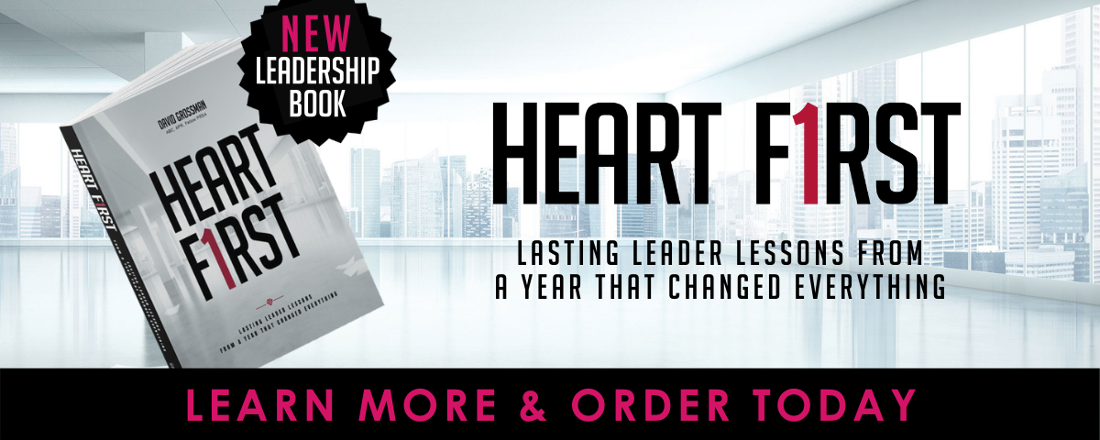
Nearly 18 months in, many of us can say we have been changed by the pandemic in some way or another. Yes, we have adapted to different ways of working, learning and living, but we also may have emerged with a new perspective on life and a realignment of priorities. This is true of many leaders who share their stories in David Grossman’s new book, Heart First: Lasting Leader Lessons from a Year that Changed Everything. Just as individuals and leaders have had to adjust as a result of the pandemic, businesses of all sizes have flexed, adapted and changed like never before, and many are grappling now with what reforms they will adopt moving forward.
I recently came across a New York Times article suggesting that the interruption caused by the pandemic provides the perfect opportunity for a fresh start. The article describes the "fresh start effect," in which people tend to make meaningful life changes around milestones such as birthdays or New Year's. It also references the concept of post-traumatic growth—transformative positive change that can occur as a result of a struggle with adversity.
I'm sure many of us can reflect on a particularly difficult time in our lives and recognize that afterward, we felt stronger, more motivated and more capable than before. Perhaps those tough times even provided a springboard to new heights, whether personally or professionally.
Post-traumatic Growth at Scale
Concepts like the fresh start effect and post-traumatic growth are timely given the transition our society is experiencing, and they can also be applied to organizations.
Many – if not most – businesses have weathered major challenges over the course of the pandemic, including closures, restrictions, supply chain disruption, and plummeting or surging demand for products and services, just to name a few. Through these difficulties, businesses have had to adapt, pivot and innovate in order to survive. Already, many companies are realizing benefits and growth that have resulted from moves they made during the unprecedented time of the pandemic. Across the U.S. and globally, organizations are beginning to see the impact of their “post-traumatic growth,” and at the macro level, the economic bounce-back may be following a similar pattern.

The Human Side of Change
While organizations may be starting to see the growth side of the challenges they navigated through the pandemic, the disruption takes a toll on their workforce – and there is surely more change to come. How are individuals dealing with the rapid evolution happening in the workplace? A key factor in whether employees are struggling, surviving or thriving in the midst of so much change comes down to how the change is communicated.
There are many benefits of a strategic and timely approach to change communications, yet sometimes leaders are hesitant to communicate about change. Maybe they don’t want to “rock the boat” and risk losing productivity due to disruption, they worry about the stress a change may cause for their teams, or they fear they might not have all the answers.
It’s understandable to hesitate in communicating a change out of a desire to spare people anxiety. It can be easy to focus on the struggle ahead and forget the positive that will come after. However, I challenge us to consider the individual impact of organizational change from the perspective of post-traumatic growth. Keep in mind that disruption provides space for a fresh start, and with it a renewed sense of purpose, determination and motivation. From this perspective, the temporary challenges individuals may face during organizational change can lead them to become even more engaged, motivated and effective in their work than they were before.
Get to the Growth
The next time change is in the wind (and isn’t it always?), think about communicating early and often as a way to accelerate people’s ability to process and work through challenges so they can grow and evolve faster. The quicker individuals can reach the “growth” side of disruption, the faster they – and the whole organization – can benefit.
Have you experienced an organizational shakeup that may have been difficult at first but ultimately enabled team members to thrive and excel in new ways? If so, how has that experience affected your perspective on communicating about and implementing change initiatives?
—Bekah Haynes

Bekah is a Vice President with The Grossman Group where she provides internal, executive, board and change communication solutions that enable clients to take their growth and success to the next level. With nearly 20 years of strategic communications experience, Bekah has counseled a variety of organizations in the healthcare, nonprofit, energy, education, real estate development, distribution and manufacturing sectors, among others. She is a Prosci-certified change practitioner and holds a Master's degree in communication arts.
Now more than ever, leaders play a pivotal role in connecting, calming, and inspiring their teams. A big part of that is leading with Heart First – click below to learn more about Heart First and order yours today:


Comments on this post